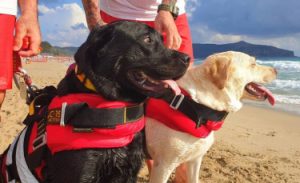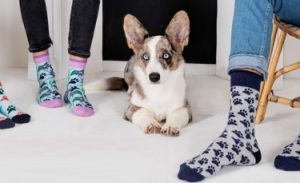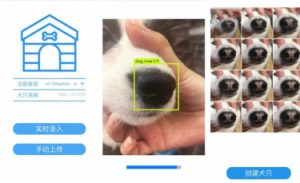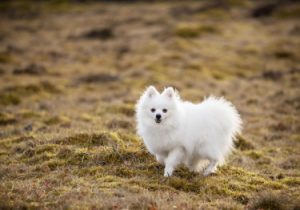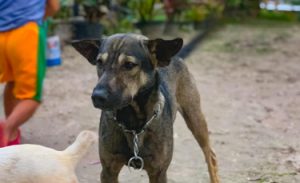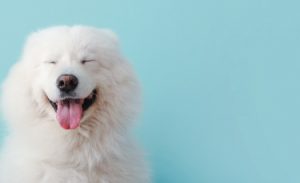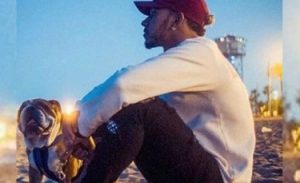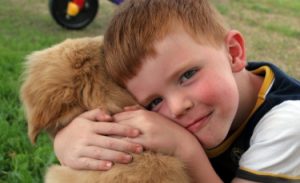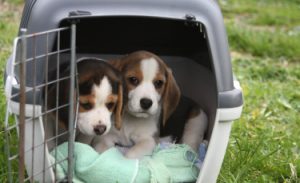Other names: Dunker, Norwegian Hound
The Norwegian Hound is a medium-sized hunting dog, whose silhouette is inscribed in a rectangle (the length of the body is greater than its height at the withers), of strong build, but without the impression of heaviness. It is cut to be robust and enduring.
<!–
–>
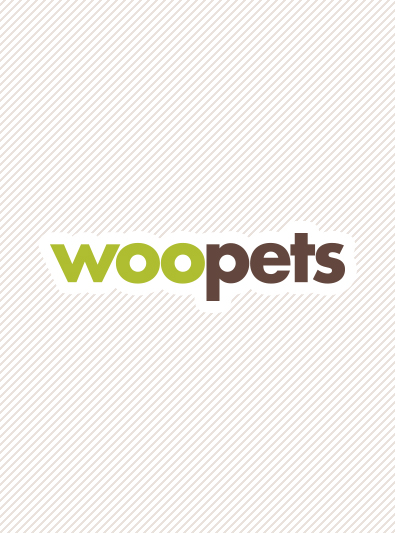
| Short | |
| Norway | |
| Average | |
| Long |
| Sex | Weight | Cut |
|---|---|---|
| Female | From 16 kg to 22 kg | From 47 cm to 53 cm |
| Male | From 16 kg to 22 kg | From 53 cm to 55 cm |
History of the breed
The breed of the Norwegian Hound was developed from the first half of the 19th century. Its other name, that of Dunker, was chosen in reference to the creator of the breed, the Norwegian captain Wilhelm Conrad Dunker . He crossed several varieties of hounds to achieve standards close to those we meet today. The number of Norwegian Hounds fell significantly during World War II, raising fears of the breed’s demise. A renewed interest in the latter was subsequently observed, particularly in the course of the 1970s. However, the numbers remain quite small today .
Physical features
His hair: straight, rough in texture, dense and not excessively short. More provided on the back of the thighs and on the tail.
Its color: black diluted with fawn markings or merle blue with darker marks.
His head: rather elongated and carried at a moderate height. The skull is slightly arched, the occiput prominent, the stop well defined, but without being deep or abrupt. The nose is black and the nostrils are wide. The muzzle is rather long and square in shape. The jaws are scissor bite and the dentition is complete. The cheeks are quite dry.
His ears: moderately high, soft, of moderate width, rounded at their end. Dangling, they are long enough to reach half the distance to the muzzle when stretched.
His eyes: dark in color, round in shape, bright and expressive, displaying a calm and serious gaze.
His body: rectangular. The neck is quite long, the top line straight, the back straight and firm, the loins strong and not arched, the rump muscular and not too short, the chest rather broad, the ribs well sprung and the belly slightly raised.
Its tail: attached at the level of the top line, thick at its root, then tapering towards its end. Reach straight or in a slight curve.
Behavior and character
| Affectionate | |
|---|---|
| Calm | |
| Protective | |
| Independent | |
| Hunter | |
| Barks / howls |
Behavior with others
| Cohabitation with children | |
|---|---|
| Sociable with other animals | |
| Love strangers |
The Norwegian Hound is a resistant and enduring dog, combining the qualities of the perfect hunting partner . With strong nerves and an excellent temperament , he is known to be very sociable and trustworthy . The Norwegian Hound is therefore as much a very good companion for his master and his family as a successful hunter.
The Norwegian Hound
is it right for you? Take the test!
Education
| Clever | |
|---|---|
| Obedient |
The Norwegian Hound is far from being the most difficult hunting dog to train , on the contrary. His attachment to his teacher, his balanced character and his motivation for work greatly facilitate the task of his educator. The basics, especially recall , should be taught from an early age. Naturally sociable, there is no great effort to make to promote understanding with others.
Living conditions
| Suitable for apartment living | |
|---|---|
| Good for new masters | |
| Love it hot | |
| Love the cold |
The Norwegian Hound is not meant to live in an apartment or other small living space. It can adapt to an urban environment if it has a large fenced garden and benefits from sufficiently long and frequent walks.
Health
| Solid | |
|---|---|
| Ease of gaining weight |
There is not much to fear from the health side of the Norwegian Hound as long as you take good care of them. Of a resistant constitution , it does not show any predisposition to a particular disease either.
Hypoallergenic breed
No
Litter size
Between 3 and 6 puppies
| Major concerns |
|
|||
| Minor concerns |
|
| Occasional concerns |
|
||
| Suggested tests |
|
To protect you from these risks and insure your companion in the event of health problems, Woopets recommends a Norwegian Hound dog insurance .
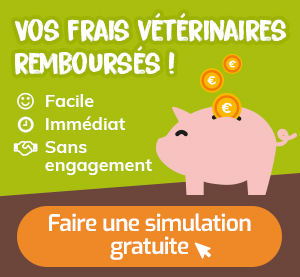
function showAssuranceForm () {var siteReferer = var id_race_association = ”; //console.log(id_race_association);success: function (html) {}});}document.addEventListener (‘DOMContentLoaded’, () => {$ (‘# assuranceModalBanner’). on (‘show.bs.modal’, function (event) {showAssuranceForm ();});});
Life expectancy
Minimum: 11 years old
Maximum: 13 years
The life expectancy of a Norwegian Hound is, on average, between 11 years and 13 years.
Calculate the human age of your Norwegian Hound!
To choose… 1 year 2 years 3 years Four years 5 years 6 years 7 years 8 years 9 years 10 years 11 years old 12 years 13 years 14 years old 15 years old 16 years old 17 years 18 years old 19 years old 20 years 21 years old
Maintenance and hygiene
| Ease of maintenance | |
|---|---|
| Cost of maintenance | |
| Hair loss |
| Drool level | |
|---|---|
| Ease of grooming |
The Norwegian Hound loses a lot of hair during its moult . The main part of the maintenance effort is to brush it for a long time to remove dead hair.
It is recommended to brush the dog once or twice a week outside of moulting periods and more often during them (at least 3 times).
Its hair, ears, eyes and pads should be examined after each outing in the wild to detect and remove any debris or external parasites. His teeth need to be brushed frequently to remove tartar build-up and the proliferation of bacteria. Finally, if they do not wear out naturally, its claws need to be cut. If you are new to this, it is recommended that you seek advice from a veterinarian or groomer.
Price and budget
Purchase price
Mini
Max € 500
700 €
The purchase price of a Norwegian Hound is between € 500 and € 700.
Annual maintenance cost
Mini
€ 450 Maxi
650 €
The annual maintenance cost of a Norwegian Hound is between 450 € and 650 €.
No name is currently proposed. Use our tool to find the name of your Norwegian Hound!
Food
The Norwegian Hound needs a quality diet that is balanced and adapted to his level of physical activity, size and age. Its food is to be divided into 2 meals per day . During the hunting season, it is advisable to adjust your rations upwards, then to return to the usual quantities once it is over.
Want the best for your dog?
Create the tailor-made diet for your Norwegian Hound
I discover !
PROMO -30% | Delivered to you!
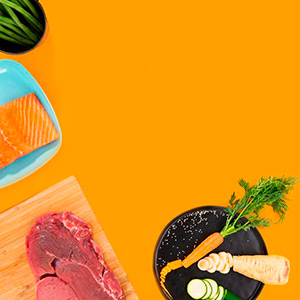
Physical activity
| Athletic | |
|---|---|
| Energy level | |
| Potential to play |
The Norwegian Hound needs a lot of exercise to be satisfied in this regard and for his balance. Long daily trips are therefore recommended.
Competitions
| Classifications & Standards |
|
Others
| Master character <span class="btnTooltip qTip2" title="- Calm: the master must be gentle and know how to show patience. – Active: the owner must be energetic and dynamic to live in harmony with his dog. – Hyperactive: the owner must be stimulating and very restless to suit the temperament of his dog.”> |
Active |
|---|
We talk on the forum
When my dog does his heavy needs, he runs away. Why ?
Guest message
Norwegian maine coon crossbreed kitten
Guest message
bam the dog now bam the dog’s revenge
Message from angeacorne
Amazing – a dog saves another dog
Message from Joo
My dog has doggy breath!
Message from Jérôme Bernier
Do you have a question about the Norwegian Hound?
Do not hesitate to ask Woopets visitors for advice on the forum!
FCI Information
FCI No.
203
FCI Group
Group 6: Hounds, Blood Test Dogs and Related Breeds
Recognized by FCI
Since 1956
</div


